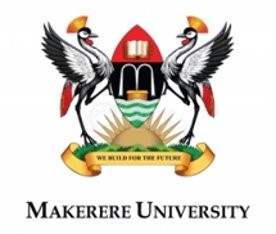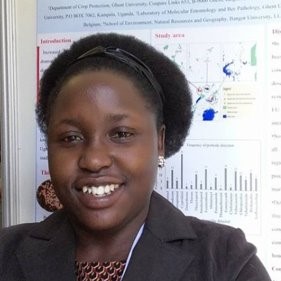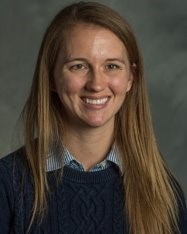

Moderator: Dorothy Nakimbugwe, Associate Professor
Dept of Food Technology & Nutrition, Makerere University

Deborah Amulen, Lecturer
Department of Livestock & Industrial Resources, Makerere University

Jennifer Pechal, Assistant Professor, Dept of Entomology, Michigan State University

Robert Musundire, School of Agricultural Sciences & Technology, Chinhoyi Univ. of Technology, Zimbabwe

Betty Kibaara, Director, Food Initiative,
Rockefeller Foundation
The global human population growth rate and the consequent food requirements are alarming. Global human population growth amounts to around 83 million annually, or 1.1% per year. The global human population has grown from 1 billion in 1800 to 7.9 billion in 2020. This growth, along with rising incomes especially in developing countries (which cause dietary changes such as eating more protein and meat) are driving up global food demand more than ever before. Food demand is expected to increase anywhere between 59% to 98% by 2050. These shocking dynamics underpin the urgent need to explore alternative food and feed sources—first to meet the escalating food demand and second to address the intensifying competition between food and feed. There is an urgent need, therefore, to explore novel alternative and sustainable food and feed production chains to directly benefit humans and indirectly through animals that will later be consumed by humans.
The proposed dialogue bodes well with the Sustainable Development Goal (SDG) number 2 -- “ending hunger, achieving food security and improving nutrition and promoting sustainable agriculture” and SDG number 12 which is “ensuring sustainable production and consumption pattern”. It is also in tune with African Union Agenda 2063 agenda # 1 on “A prosperous Africa based on inclusive growth and sustainable development”. Finally, this dialogue contributes directly to the Alliance for African Partnership pillar 3 on “Transforming lives”.
This dialogue seeks to assemble world-class experts in the insect for food and feed space to interact with hundreds of interested stakeholders in the academia, government organizations, industrial partners and research organizations with a view to shed light and insights in this field and open avenue for further capacity building, research, and outreach in the area. The expected outcomes are:
Hundreds of interested stakeholders (participating and those that will listen to the recording) made aware of the current state of knowledge in insects for food and feed
Establishment of a community of practice on insects as food and feed on the AAP Bridge who will then begin interacting on the subject on a diversity of topics
Sharing of opportunities and challenges facing the insect for food and feed efforts towards closing the food security gaps in Africa